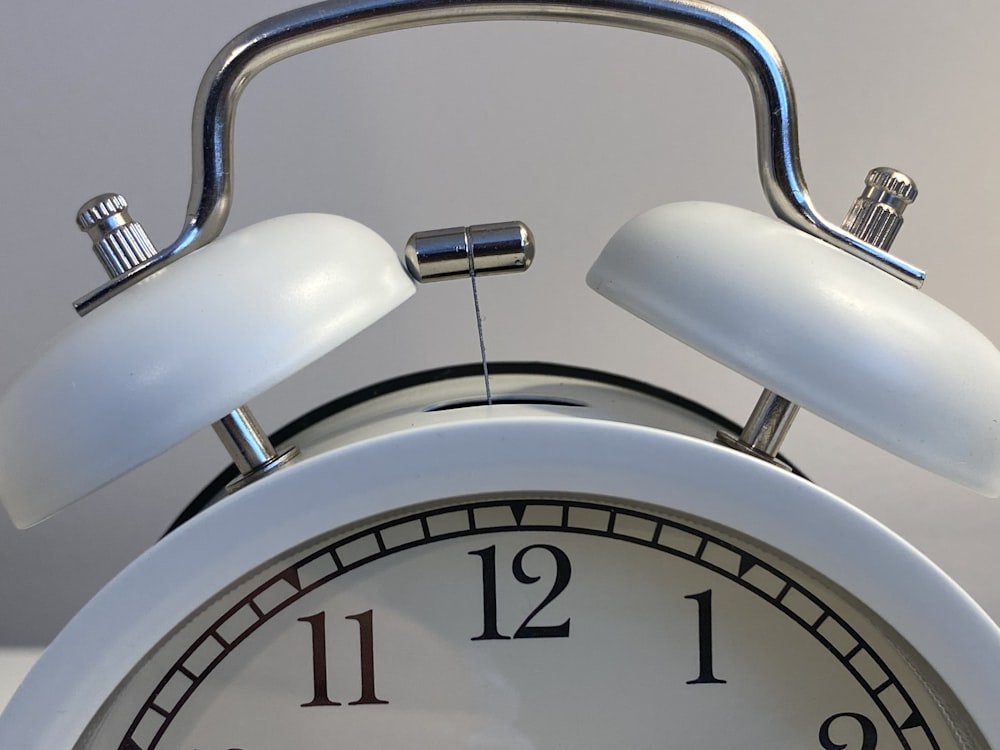While many people understand the importance of a consistent, sleep-promoting nighttime routine, they may not realize that what they do in the morning could just as easily sabotage their efforts to get a good night’s rest.
The morning sets the tone for your entire day, for better or for worse. By following some key health practices in the early hours of the day, you can ensure that your body feels rested and refreshed, no matter what your schedule has in store.
1. Have a Consistent Wakeup Time
Just like how a consistent bedtime helps your body “learn” when it is time to go to sleep, waking up around the same time each day will help your body feel better rested and ready to get going. Waking up at significantly different times each morning makes it harder for your body to sync its circadian rhythm, making you more likely to feel tired.
Ideally, your wake time should be roughly seven to nine hours after you fall asleep, based on your individual sleep needs. This may vary based on whether you’re an “early bird” or “night owl,” especially since each person has their own ideal number of hours that they sleep. It may take some trial and error, but once you find a schedule that seems to work well, you should stick to it.
Interestingly, one study found that people who adhered to a strict wakeup time reported significantly higher levels of satisfaction in their personal life, financial situation, and work-life balance than those without a strict wakeup time.
2. Eat Breakfast
Breakfast has long been referred to as “the most important meal of the day” because it literally breaks the fast that your body goes through during sleep. A healthy breakfast provides glucose, which is necessary for helping you feel energized and alert. Eating breakfast also puts your metabolism on the right track, helping you avoid overeating later in the day.
Of course, not all breakfasts are created equal. A balanced breakfast should provide a good mix of carbohydrates, protein, fiber, and healthy fat. This gives you added energy in the morning and sustained energy later in the day, while also helping you feel full after your meal.
3. Get Some Light
At night, you want to avoid exposing yourself to light sources, as this can hinder your body’s ability to produce melatonin and make it harder to fall asleep. In the morning, however, you want to get light as early as possible after you wake up.
Exposure to early morning sunlight helps keep your body’s circadian rhythm in check, signaling that it is time to wake up. This helps the body naturally transition into a state of wakefulness. Even something as simple as opening the blinds after you wake up or going for a morning walk will provide the necessary light exposure to get out of a sleepy state.
4. Don’t Hit Snooze!
If you use an alarm to wake up in the morning, you know how tempting it can be to hit the snooze button so you can sleep for a few more precious minutes.
Unfortunately, this can actually do more harm than good. Many people fall into deeper sleep after they hit the snooze button, making it even harder to wake up when the alarm goes off again a few minutes later. In addition to feeling even groggier on that particular morning, this practice also makes it harder to stick to a set wakeup time, which is essential for feeling better rested in the morning.
Hit the snooze button too many times, and you might find yourself running late for work — and subsequently skipping breakfast and other important parts of your morning routine.
5. Be Aware of Signs of Sleep Disorders
If you follow these habits as well as a good nighttime routine and still struggle to feel well-rested in the morning, it may be helpful to get evaluated for sleep disorder. People with insomnia often struggle to fall asleep and stay asleep due to stress, anxiety, or other factors.
Sleep apnea is another common sleep disorder that can leave you feeling exhausted in the morning, even after getting what seems to have been a full night’s sleep. Common morning side effects of sleep apnea include a morning headache, a dry mouth, and sore throat.
By scheduling an overnight sleep study, sleep specialists can evaluate your brain waves, heart rate, breathing patterns, and other vital signs to determine what type of disorder is affecting your sleep. With this information, they can help you develop a treatment plan to mitigate the condition so you can enjoy higher-quality rest.
Start Your Day Off Right
The way you start your day can help you have the energy needed for work, household chores, and anything else that might be in your schedule. Of course, if you are struggling with a sleep disorder such as sleep apnea, no amount of positive changes to your schedule will help you feel better rested. You need a professional diagnosis from a sleep study and necessary equipment such as a CPAP machine to mitigate your condition.
Unfortunately, purchasing this medical equipment can become a financial burden if you don’t have health insurance coverage. This is where No Insurance Medical Supplies makes a difference. In addition to offering discounted prices on products from leading brands like ResMed and Human Design Medical, you can enjoy available financing on all purchases of $500 or more.
With affordable CPAP equipment and healthy sleep habits, you can get the quality rest you deserve.



